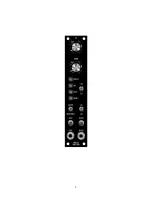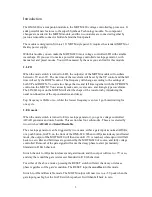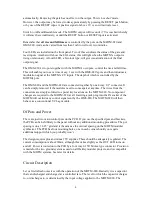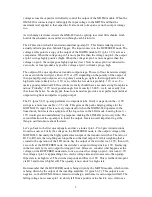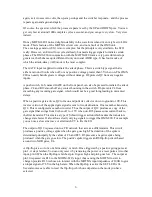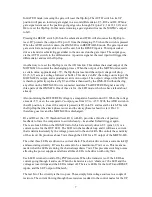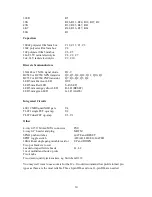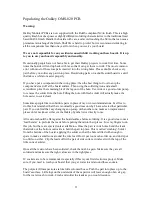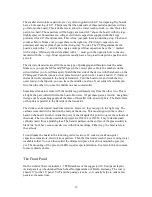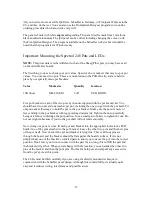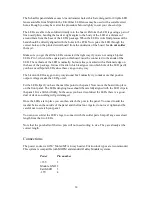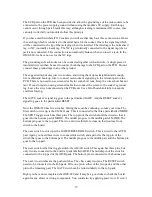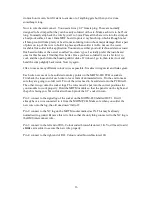
do much on its own, but if it starts to smoke or of anything gets hot then you’ve done
something wrong.
Now to wire the interconnect. You need a 4-way 0.1” female plug. These are normally
designed to be crimped but they can be easily soldered with care. Make each wire to be 25cm
long. I normally strip back the wire by just 2 to 3mm. Place all the bare wire into the crimp on
a heatproof surface. I use 12mm MDF board to protect my bench top, which although not at
all burn proof will take plenty of heat from a soldering iron without major damage. Rest a pair
of pliers on top of the wire to hold it in place and then solder it in. Do not use the water
washable flux solder in this application. You must use either good old fashioned ersin or rosin
flux based solders or the newer so called ‘no-clean’ types. I actually prefer the rosin based
ones for this because I find they flow better. Once you have soldered it, wait a bit for it to
cool, and then push it into the housing until it clicks. If it doesn’t go in, then take it out and
bend the crimp slightly backwards. Now try again.
I like to use as many different colour wires as possible. It makes wiring easier and looks great.
Each wire now needs to be soldered onto key points on the MOTM-820 PCB or sockets.
Trim back the loose end of each wire to leave 3mm of uninsulated wire. Tin the end to make
sure they are going to solder well. Two of the wires need to be soldered onto the PCB itself.
The other two go onto the socket lugs. The wires must be put into the correct positions for
your module to work properly. Hold the MOTM module so that the panel is on the right, and
the pcb is facing you. We will deal with each pin of the 0.1” socket in turn.
Pin 1: connect to the signal lug of the socket on the MOTM-820 labelled OUT1. It will
already have a wire connected to it from the MOTM PCB. Make sure when you solder the
new wire onto the lug, the old one doesn’t fall off.
Pin 2: connect to the NC lug on the MOTM socket marked as IN. This maybe already
normalised to ground. Remove this wire link so that the only thing connected to the NC lug is
the OMS interconnect wire..
Pin 3: connect to the left end of R16. Colour coded brown-black-red, 1K. You’ll need to add
a
little
extra solder to secure the new wire properly.
Pin 4: connect to the right end of R21. Colour coded brown-black-red, 1K
16
Summary of Contents for MOTM-820
Page 2: ...2...

